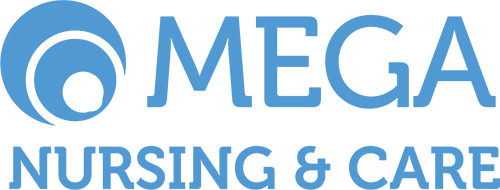Effective communication is the foundation of quality healthcare, and this holds especially true in domiciliary care, where healthcare professionals provide essential services to service users in the comfort of their homes. Domiciliary care requires a unique set of communication skills to ensure the best possible outcomes for service users. In this blog, we will explore the crucial role of communication in healthcare, with a focus on domiciliary care, and shed light on how we excel in this area.
1. Building Trust and Rapport
One of the first and most essential aspects of effective communication in healthcare is building trust and rapport with service users. Our carers in Mega Resources have mastered the art of building trust with their service users. We understand that service users are more likely to be open and honest about their symptoms and concerns when they feel comfortable and trust the individuals providing their care. Trust is the foundation upon which all other aspects of great care are built.
Rapport can be built in many ways for example:
– Consistency and reliability
– Cultural Sensitivity
– Clear Communication
– Respect for boundaries
– Respecting privacy and confidentiality
2. Accurate Assessment
We stand out in domiciliary care for our commitment to accurate assessments. Effective communication within our company ensures that our carers can accurately assess the service users’ and family’s needs and make a proper verdict. All communication is actively listened to, allowing our Care Coordinators to make informed decisions about their care and requirements.
3. Tailored Care Plans
Each service users are different, and their healthcare needs can vary significantly. At Mega Resources we understand that effective communication is key to creating personalised care plans that address the specific needs, preferences, and goals of the individual. Through active listening and clear communication, we ensure that service users receive care that aligns with their values and expectations. Additionally, we place a strong emphasis on cultural sensitivity, understanding, and respecting each service user’s cultural background, beliefs, and practices. By integrating cultural awareness into our care plans, we ensure that our services are not only effective but also aligned with the cultural characteristics and preferences of the individuals we care for, ultimately promoting a more inclusive and respectful healthcare experience.
4. Managing Medications
In domiciliary care, service users may be responsible for their medications, and this can be a complicated and sometimes daunting task. We at Mega Resources excel at educating service users and their families about proper medication administration. Service users are empowered with the knowledge we need to understand their healthcare routine, reducing the risk of errors. At Mega Resources we do also administer medication, although do like to promote independence where possible.
5. Empowering Service Users through Cultural Sensitivity
At Mega Resources, we empower service users to take an active role in their healthcare. Effective communication helps them understand their conditions and potential outcomes, promoting better self-management and improved health. We also understand the importance of cultural sensitivity, respecting individual backgrounds, beliefs, and practices. This ensures our empowerment strategies align with cultural identities and preferences, resulting in a more inclusive and effective healthcare experience.
6. Managing Expectations
Domiciliary care often involves long-term or palliative care, where the focus may be on improving the service users’ quality of life rather than curing an illness. Being transparent about what can be achieved and what to expect helps reduce anxiety and allows service users and families to prepare for the future.
Conclusion:
Better communication with service users in healthcare, especially in domiciliary care, is not just important—it’s essential for providing high-quality, personal-centred care. Mega Resources, as a leader in the industry, demonstrates the importance of effective communication by building trust, ensuring accurate assessments and diagnoses, tailoring care plans, empowering service users, managing expectations, and overseeing medication and treatment management. By emphasizing effective communication, we (Mega Resources) create a positive, collaborative, and compassionate healthcare environment that ultimately leads to improved service users’ outcomes and a higher quality of life for those receiving domiciliary care. Mega Resources, with our commitment to effective communication, is a shining example of how healthcare providers can excel in this crucial aspect of service user care.
There’s a reason why our company slogan is ‘Longevity through excellence’. Please read our testimonials on our website or Homecare.co.uk to see what our service users say.
